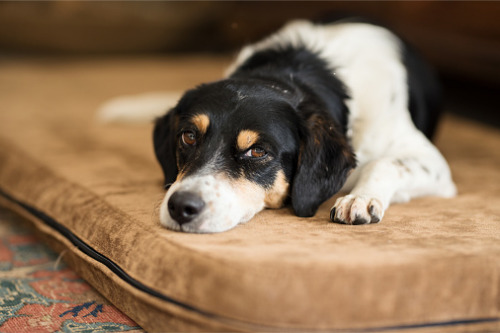

Do pets experience the winter depression the same way we do? A third of New Zealand’s dog and cat owners seem to think so, according to a new survey from Pet-n-Sur.
In a recent online survey, the country’s largest pet insurer found that 47.5% of respondents feel that their dogs sleep for longer during the winter months, with two in five owners saying their dogs appear to be less active. And among cat owners, one in three reported that their pet seems less playful during winter.
Tony Radisich, chief executive officer of Pet-n-Sur, said that while animals probably don’t struggle with seasonal affective disorder (SAD) in quite the same way as people, it’s likely that the change in temperature does have some impact on their behaviour.
“Despite our similar brain chemistry, there is extensive research in people but really very little research into SAD in animals,” said Radisich. “However, even if they don’t suffer from SAD in quite the same way as we do, that’s not to say that they don’t feel different at this time of year. Commonly reported signs from owners include grumpiness, sleeping more, and an increased appetite.”
According to Radisich, pets often mirror the emotions of their owners so they could also be reacting to the behaviour they observe.
“We are sometimes more reluctant to go outside when it’s raining, for example, so your dog could be feeling the blues from being taken on less frequent, shorter walks,” said Radisich. “There is a tendency to project our feelings as well, so be careful that you’re not overfeeding your dog or cat simply because you feel cold, a bit down and in need of some comfort food yourself.”
Radisich said that that owner should try and maintain the same routine year-round as much as possible, to keep dogs and cats feeling well. He also pointed out that older or unwell pets might feel the change in the seasons more acutely than others.
“If you start noticing a change in mood, give your dog or cat the opportunity to play and be outside,” he said. “Whilst it may not seem appealing to go for a walk on a grey, drizzly day, the change of scenery is not just exercise but a valuable time for mental enrichment and stimulation for your pet. Remember that elderly pets and those with health conditions might struggle with the rain and cold – sore, stiff joints could be a problem, for example. Make sure they have a warm spot to curl up in, and perhaps consider a joint supplement for those dealing with arthritis and other mobility issues.”
